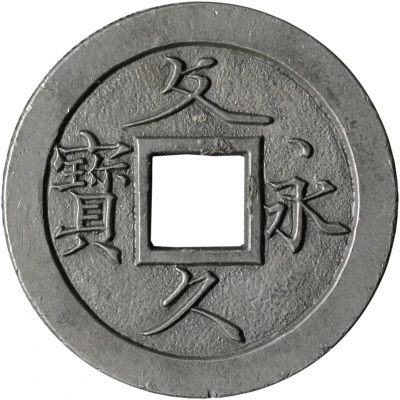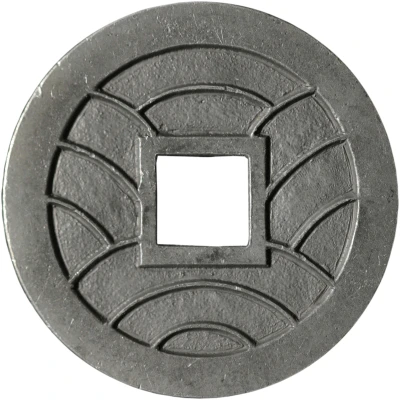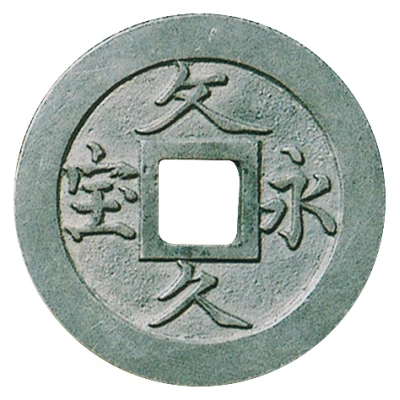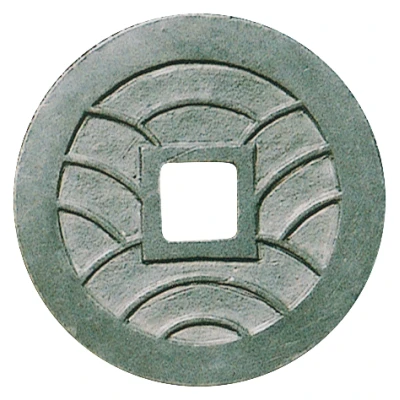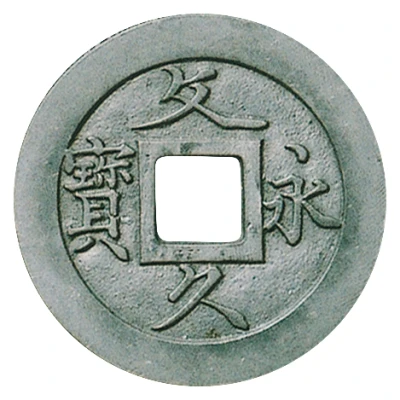
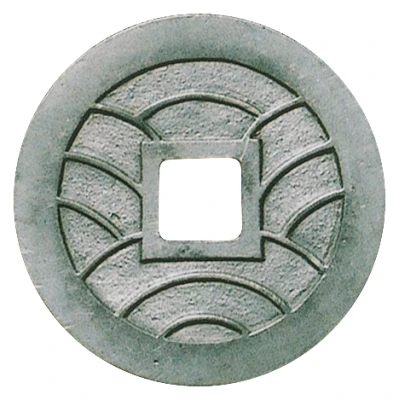

© Ginza Coins
4 Mon "Bunkyūeihō" Bosen; tin alloy; cursive script; KŌKAKU KATSUEN ND
| Tin (Tin alloy) | - | - |
| Issuer | Japan |
|---|---|
| Type | Pattern |
| Years | 1863-1868 |
| Value | 4 Mon |
| Currency | Mon (683-1953) |
| Composition | Tin (Tin alloy) |
| Shape | Round with a square hole |
| Technique | Cast |
| Orientation | Medal alignment ↑↑ |
| Demonetized | 31 December 1953 |
| Updated | 2024-10-06 |
| Numista | N#291861 |
|---|---|
| Rarity index | 100% |
Reverse
11 waves
Interesting fact
One interesting fact about the Pattern 4 Mon "Bunkyūeihō" coin from Japan is that it was made of tin alloy, which was a common material used for coins in Japan during the late Edo period. However, the use of tin alloy for coins was eventually discontinued due to its low durability and tendency to corrode easily. As a result, coins made of tin alloy, such as the Pattern 4 Mon "Bunkyūeihō," have become relatively rare and highly sought after by collectors.
